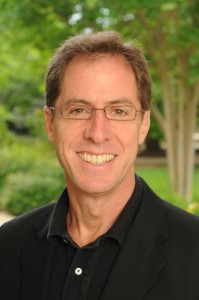Ed Maibach had an epiphany while mountain hiking in 2006. Walking with Professor Hans Joachim Schellnhuber – Director of the Potsdam Institute for Climate Impact Research – he realized that while climate change is the ultimate threat to the public’s health and well-being, the vast majority of us don’t realize it.
![]() This inspired him to refocus his work on prevention and adaptation, joining George Mason University’s Center for Climate Change Communication in 2007.
This inspired him to refocus his work on prevention and adaptation, joining George Mason University’s Center for Climate Change Communication in 2007.
Ed Maibach – Center for Climate Change Communication“Climate change is associated with all kinds of things, from alarmists to demonstrators to extremists to it being a ‘Democratic issue.’ Fundamentally, it’s been framed as an environmental issue, but it should be a human, public health issue,” Maibach told me in a recent get together.
But how do we get people to understand climate change is fundamental to the survival of human civilization – to you and me? Maibach’s working on a few very interesting communications initiatives involving people who are innately trusted by the general public. Two examples he cited (there are many other possibilities) are local TV weather forecasters and pediatricians.
 “People like this are right here in our local community. We see them or hear from them often. We rely on their judgment and have a relationship with them. They could become a trusted conduit to educate people about the human impact of climate change.”
“People like this are right here in our local community. We see them or hear from them often. We rely on their judgment and have a relationship with them. They could become a trusted conduit to educate people about the human impact of climate change.”
So let’s say you bring your child to the pediatrician and the subject of an extreme weather event comes up in a passing conversation. This moment can become an opportunity for the pediatrician to very casually connect this with global warming and the impact on your child. No dissertation, slide show and long discussion; just a simple, quick comment connecting effect with cause. It’s subtle, real-time and authentic.
Maibach said he’s securing funding from the National Science Foundation and will be testing this local trust concept with a CBS TV affiliate weathercaster in Columbia, South Carolina. If it goes well, the idea may scale nationally.
“People can’t grasp climate change. We need them to understand that global warming is (A) real and (B) bad for people.”
By subtly educating people through trusted connections, Maibach says, “We’re finding a way to fly this topic under the perceptual radar screen. If we can get your local pediatrician to explain what’s going on, then we’re letting what they say into our heads and hearts.”